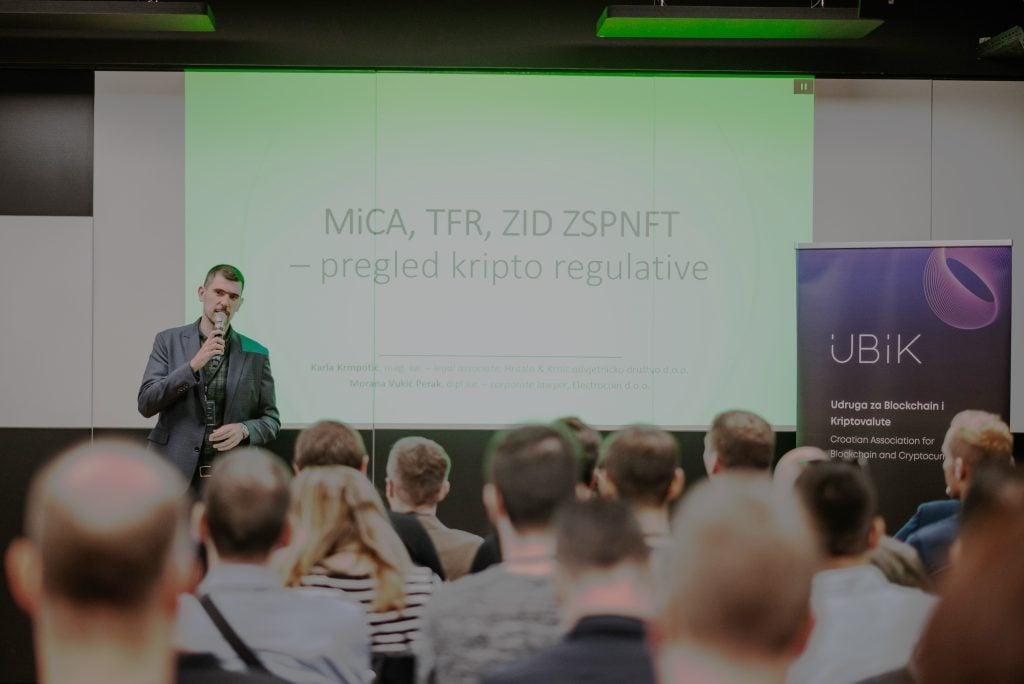Only have 1 minute? Here are 3 takeaways from the piece
• As from July 6th, Croatia has a full regulatory framework for the registration of virtual asset service providers (VASPs) or commonly known as cryptocurrency exchanges
• The new laws follows the European Markets in Cryptoassets (MiCA) regulation, expected to enter into force between mid-2024 and early 2025
• Experts point out that this could make also Croatia an “El Dorado” for crypto businesses
The new rulebooks stipulate the terms under which a VASP can be entered into the register of VASPs, which documentation should a VASP enclose with the request for the registration, and which reports are VASPs obliged to send to regulators on annual or monthly basis.
The bylaws that have been enacted by the country’s financial regulator HANFA at the beginning of this month will also aim to harmonize existing regulation with ongoing technological development and growing demand for crypto assets.
Industry experts point out that this could make Croatia as the ideal location to register a crypto business in the EU and attractive destination for the latest crypto rush.
“I expect HANFA bylaws to make Croatia THE place to register a crypto business in the EU. One of the reasons is surely the passporting system similar to that of the banks which enables a business to passport its license from one EU country to all the other,” Vlaho Hrdalo, lawyer and chairman of the Croatian Union for Blockchain & Cryptocurrencies (UBIK), tells The Recursive.

However, ahead of an incoming crypto rush in Croatia, the existing industry itself now has a tougher challenge ahead – how to adjust and remain compliant.
“Existing crypto industry in the country is now in the process of adjusting their papers to remain compliant. But they also need to be on high alert because the very good bylaws enacted by HANFA will attract a lot of competition. Croatia is a perfect EU gateway country now that we’ve introduced the euro as our currency,” Hrdalo adds regarding a potential crypto rush.
While the industry’s views have been taken into account when drafting the legislation, the adjustment won’t be an easy process, the business community points out.
“Being compliant with all the new laws will certainly not be an easy process, both financially and operationally, especially for smaller crypto businesses due to the administrative obligations those bylaws impose. This could cause existing smaller businesses to cease their crypto operations, or new ones simply give up on their planned projects,” Nikola Skoric, founder and CEO of Croatian cryptocurrency brokerage and payment processor Electrocoin, tells The Recursive.
Further developing Croatia’s crypto industry
Recently, Croatia also saw one of its biggest crypto companies, Bitlucky, collapse and cause an alleged loss of $15M in clients assets – which subsequently led to a police investigation into the matter. It is expected that the new regulation will also serve to prevent such cases in future.
According to Skoric, these bylaws represent the most important steps for the further development of the crypto industry in the country.
“They will provide a clear set of rules and guidelines for both regulators and crypto-related companies, as well as transparency in the eyes of the customers (which leads to more trust in the crypto industry). We believe that these changes, if understood and implemented well, could encourage the Croatian crypto industry to continue developing and to grow to an even greater extent,” Skoric adds.
Furthermore, the new regulation has initially attracted the attention of many non-Croatian projects – and could cause a shift in the balance of the local industry itself.
“We’re already witnessing a surge in non-Croatian projects approaching us to get registered in Croatia and consequently move their business to Croatia. This also means there will be no more room for the banks to refuse to open a bank account for these businesses because they will now be licensed which takes away the argument that the banks have been using hitherto,” Hrdalo points out.
So far it’s not exactly clear how the country’s regulators aim to deal with this development, since it is following EU’s MiCa regulation, which establishes the legal framework for the sector for the first time at the EU level and it will be directly applied in all member countries.
“Businesses are betting they won’t be required to do anything further once MiCA enters into force if they go through this process now (which is a well-founded assumption indeed),” Hrdalo concludes.








